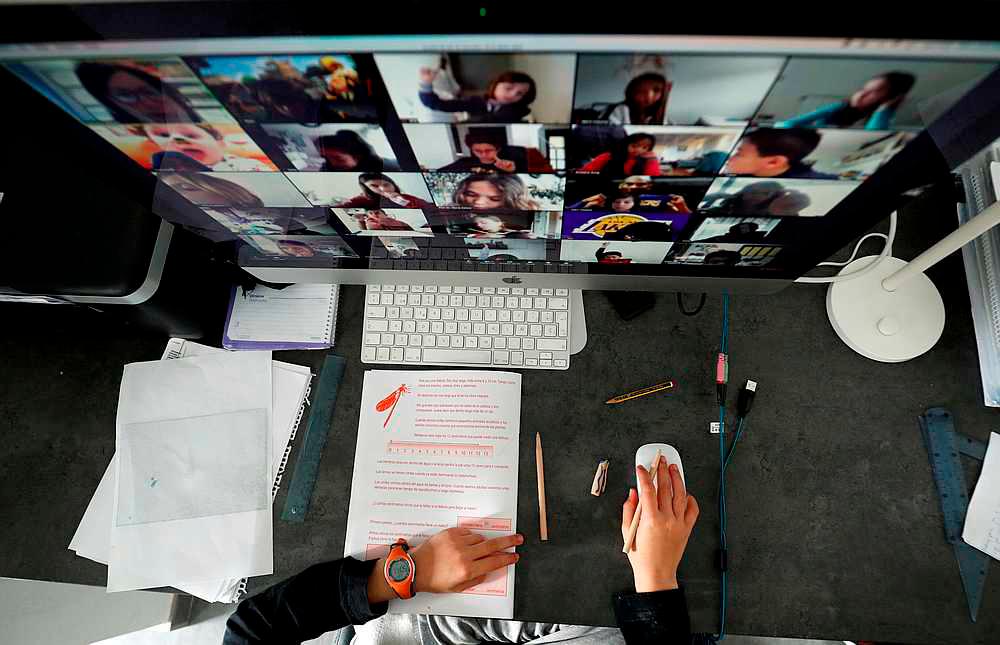PETALING JAYA: It takes a lot to be a teacher.
The stress level for educators has soared to new heights of late as they strive to meet the challenges that come with the learning-from-home structure.
Among others, the inability to cope with modern technology in a healthy way, a condition usually referred to as “techno-stress”, has left teachers unable to achieve a work-life balance.
“They are spending too much time in front of the computer, giving assignments and assessing students’ performance as well as attending meetings,” said counselling psychologist Dr Gerard Louis, who is also dean at the Faculty of Behavioural Sciences, Education and Languages at HELP University.
Louis said among other factors, techno-stress is caused by the need to work in a digital environment for extended periods, leading to “techo-overload”.
Coupled with that is the need to be constantly available to the point where information and communication technology is used excessively in one’s daily life (techno-invasion), or the need to be competent in a digital environment.
Primary school teacher D. Sharon could not agree more.
“Working from home requires double the effort, thereby causing twice as much stress.”
Teachers now no longer have specific hours to clock in and out.
“We have to respond to queries from parents and students at all hours, day and night.”
A major challenge is the inability of students to join online classes because of poor internet connection.
“When half of your students have trouble staying connected, it is stifling,” she added.
Secondary school teacher V. Guna said she prefers face-to-face teaching.
“It’s more effective, students enjoy their lessons and they are more confident.”
“Even with the most up-to-date technology, the planning and interaction with students is a bit more complicated online.”
There have been as many types of response to such stress.
Guna opts to meditate and attend motivational classes. She does workouts in her spare time, and watches her favourite TV series to maintain her mental health.
Sharon chooses to suppress it, which she now realises, has led her to feel burnt out.
There are healthy ways to cope with the new normal in teaching, according to Louis.
He said staying healthy by engaging in enough exercise can help ease the stress.
“Apart from that, teachers should
re-evaluate their perspective. They should consider a more positive approach to online teaching rather than dwell on the negative aspects.”.
He advised teachers to connect with friends virtually, pointing out that any type of social support helps to ease the sense of isolation that may lead to depression and anxiety.
“Pick up a new pastime that does not need additional screen time on weekends, such as gardening, reading or cooking,” he added.
Senior university lecturer Asil Ghebllawi has successfully adjusted to the new normal despite initially feeling that she was not in a “decent place” to perform properly.
“This would not have been possible if not for the support of my faculty, the university and my students.”
She said the toughest part was persuading her students to pay attention.
“As time passed, I have come to understand that I need to embrace the reality that my students also want their free time, which is why I constantly check on their mental well-being.
“I ask them if they need more time with their work.”
And after her son has gone to bed, Asil gives her mind a rest by watching a mind-numbing TV show.









